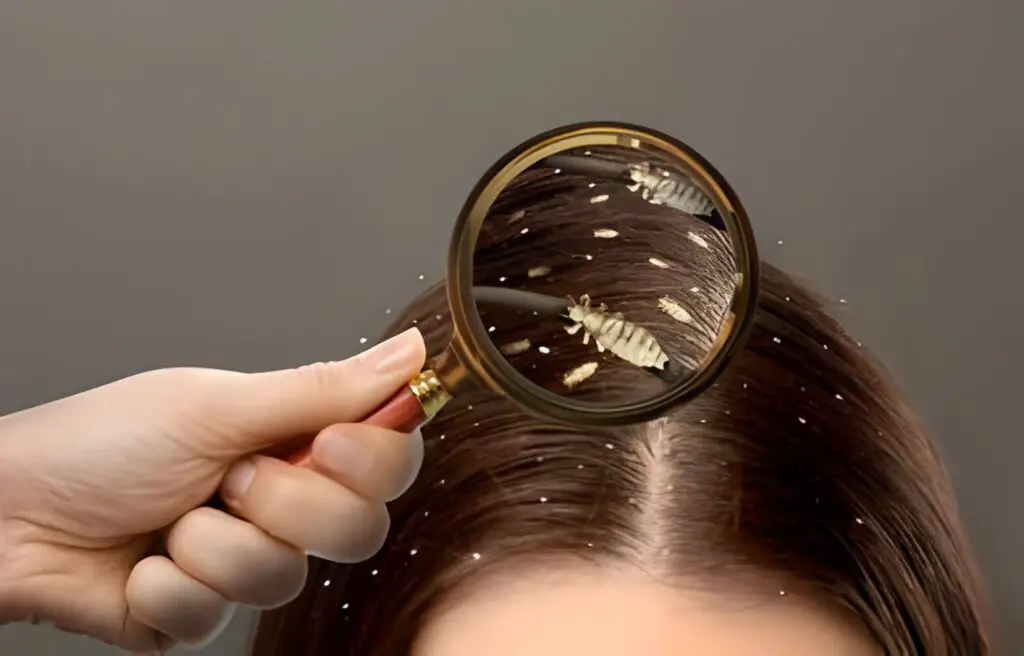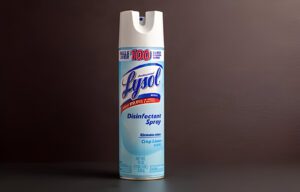Lice are tiny, wingless insects that feed on human blood and live in the hair of humans. They can spread from person to person through direct contact or by sharing items such as hats, combs, or pillows. Lice can cause itching, irritation, and sometimes infections on the scalp.
Many people wonder can Lysol kill lice, a common household disinfectant, can kill lice on furniture and other surfaces. However, this is a myth that has no scientific basis. In fact, Lysol is ineffective at killing lice on household surfaces .
Lice can only live for a short time without a host (24-48 hours) and most head lice infestations do not require any special attention to the question of how to treat lice on furniture. The target of treating head lice should be the heads, not the furniture.
Can Lysol Kill Lice
The answer is no. Lysol is not a solution for lice treatment or prevention. The best way to get rid of lice is to use a proven lice-killing product and follow the steps above. By doing so, you can ensure that you and your family are lice-free and healthy.
What Kills Lice
So, how can you treat head lice and avoid re-infestation? Here are some tips and resources for effective lice treatment and prevention:
Use a medicated shampoo, lotion, or cream that contains an insecticide that kills lice and their eggs. Follow the instructions carefully and repeat the treatment as needed. You can find these products over-the-counter or by prescription from your doctor.
Comb the hair with a fine-toothed comb to remove any remaining lice and nits (eggs). Do this daily for at least two weeks after the first treatment.
– Wash all clothing, bedding, towels, and personal items that the person with lice used in hot water and dry them on high heat. This will kill any lice or nits that may have fallen off the hair.
Vacuum the carpets, furniture, and car seats where the person with lice sat or slept. Dispose of the vacuum bag or empty the canister after use.
Avoid sharing items that touch the head, such as hats, brushes, or headphones, with anyone who has lice or may have been exposed to lice.
Check the heads of all family members and close contacts for signs of lice. If you find lice, treat them as soon as possible.
What are some common myths about lice?
Now that you know the answer to ‘’can Lysol kill lice’’, here are some popular myths.
There are many myths about lice that can confuse or mislead people about how to treat and prevent them. Here are some of the most common myths and the facts behind them:
Myth: Only people with poor hygiene get lice.
Fact: Lice feed on blood in the scalp, so they’ll target anyone with any hair type. Getting lice doesn’t mean anything about your personal hygiene or living circumstances.
Myth: It doesn’t matter how often you wash your hair.
Fact: Lice cling to washed hair more easily. Lice don’t seem to prefer washed hair, either. They’ll exist in any type of hair.
Myth: Your pet can give you lice.
Fact: Head lice feed on human blood, so only humans can get them. Your pet can’t transmit lice to you or vice versa.
Myth: Black people don’t get head lice.
Fact: According to the Centers for Disease Control and Prevention (CDC), African Americans can get head lice, though they seem to get them less frequently than people of other racial groups.
Does Vinegar Kill Lice
No, Vinegar is a common home remedy for head lice, but some people mistakenly think it will kill adult lice and their eggs, which are called nits. In reality, vinegar cannot kill head lice directly because it’s not toxic to them.
However, it can help remove the nits stuck to your hair, which prevents new lice from hatching and infesting your head. More specifically, the acetic acid in vinegar dissolves the protective shells surrounding nits and disables them from sticking to your hair.
After using vinegar, the nits either fall out of your hair or become much easier to remove with a fine-toothed comb. Although vinegar can’t kill adult lice, they may be able to kill newly hatched lice called nymphs. More research is needed to better understand the impact of vinegar or acetic acid on head lice.
The best way to treat head lice is to use a proven lice-killing product and follow the steps above. Using a medicated shampoo, lotion, or cream that contains an insecticide that kills lice and their eggs is recommended.

Homemade Lice Spray for Furniture
There are some homemade lice sprays that you can make with natural ingredients to treat your furniture and bedding. Here are some examples:
Tea Tree Oil Spray: In a spray bottle, combine 20 drops of tea tree oil and 2 cups of water. Shake well and spray on your furniture and carpet. Let it dry and vacuum the area. Repeat daily until the lice are gone.
Vinegar and Essential Oil Spray: In a spray bottle, combine 1 cup of white vinegar, 1 tablespoon of tea tree oil, 1 tablespoon of eucalyptus oil, and 2 cups of water. Spray generously on your furniture, especially the cracks and crevices, and let it air dry.
Neem Oil and Vodka Spray: In a spray bottle, combine 4 ounces of vodka, 1 teaspoon of neem oil, and 80 drops of essential oils (such as lavender, peppermint, clove, or cinnamon). Spray on your furniture and bedding and let it dry. Vacuum the area and wash the bedding in hot water.
These homemade lice sprays are safe and effective, but you should also treat the source of the infestation, which is the hair and scalp of the person who has lice. You can use a special shampoo, comb, or other methods to get rid of the lice and nits from the hair. You should also check the other members of your household for lice and treat them if necessary.
See also: Does pine sol kill dust mites
How to Remove Lice from Hair Permanently
While the question of can Lysol kill lice is frequently asked, many want to know how to remove lice from hair permanently.
Using a pediculicide, which is a chemical treatment that kills lice and eggs. You can buy these products over the counter at your local pharmacy, such as Nix, Ovide, or RID. Follow the instructions on the packaging and apply the product to your hair and scalp. You may need to repeat the treatment after a week or so to make sure all the lice are gone.
Using essential oils, which are natural substances that have anti-lice properties. Some of the most effective oils are tea tree, eucalyptus, lavender, peppermint, clove, or cinnamon. You can mix these oils with a carrier oil, such as coconut or olive oil, and apply them to your hair and scalp. Leave them on for an hour or overnight, and then wash your hair with regular shampoo. You may also need to repeat this process several times until the lice are eliminated.
Using home remedies, which are simple and inexpensive solutions that you can make with ingredients you may already have at home. Some of the most popular remedies are mayonnaise, vinegar, neem oil, or camphor. These substances can suffocate or repel the lice and make it easier to comb them out. Apply them to your hair and scalp, cover with a shower cap, and leave them on for a few hours or overnight. Then wash your hair with regular shampoo and comb out the dead lice and eggs.
If you have any questions or concerns about can Lysol kill lice, please consult your doctor or pharmacist. They can provide you with more information and advice on how to deal with this common problem.


